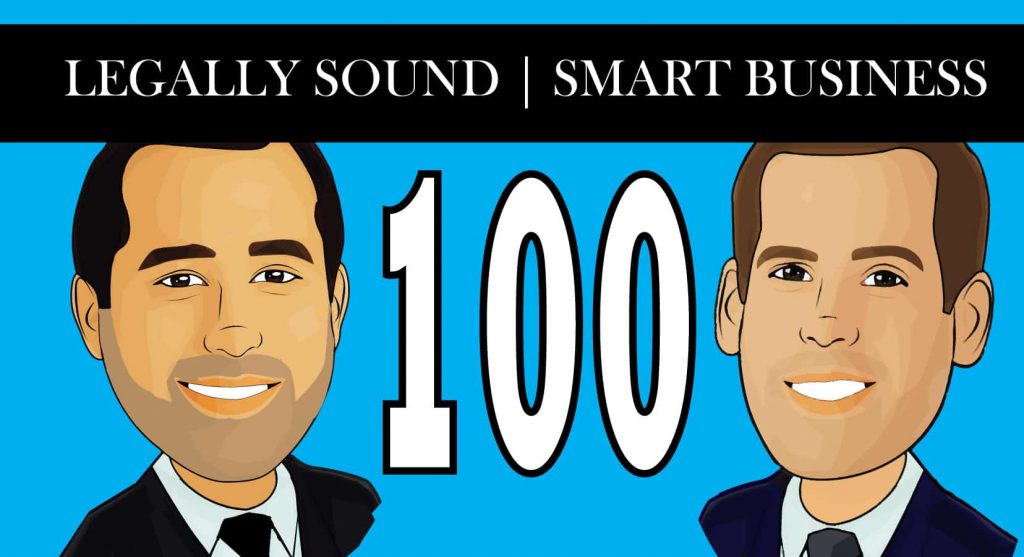And what is happening with the sharing economy? Is this a fundamentally new economic idea or an agile way of dealing with hard times? Let us use the clues from Question One to answer Question Two. Very Sherlockian. Airbnb’s recent moves suggest a very mainstream approach to success.
The Evidence
- In New York, the Supreme Court for the County of Albany quashed a State Attorney General’s subpoena that would have required airbnb to turn over the records of New York hosts. These records were to include the hosts’ physical and email addresses, dates of guest stays and the amount of revenue earned from rentals, among other information. The office of the attorney general has announced that it will issue a new subpoena limited to address the court’s concerns.
- Airbnb followed its victory by seizing more territory, with a public relations petition drive featuring testimony from struggling homeowners whose ability to stay in their homes depends on airbnb guests. They also launched a new app, specially designed for the spontaneous, who just decided to do a weekend in wine country.
- Meanwhile, airbnb also announced its intention to pay the hotel tax on behalf of hosts (the predicate for the New York action) in San Francisco and Portland, Oregon.
- Airbnb, reportedly valued at $10 billion, is expected to go public later this year.
Is “The Sharing Economy” Just a Dressed Up Version of “The Scramble”?
Most small businesses know the latter well, honor it in principle, and would like to get as far away as fast humanly possible. To be fair to both scramblers and their customers, however, there are many sides to this question.
The problem courts face is to decide how this new thing is familiar. How is it different? How shall we balance the interests of airbnb hosts and guests? Legal thinking, in general proceeds tediously through analogy, and much ink has been spilled on these questions.
- Is airbng like a hotel? New York has a hotel tax that can be steep. That gets tacked onto the tab of every New York hotel guest. Airbnb guests and hosts have not generally been paying this tax. Many are unaware that it exists. New York hotels also have to comply with certain safety precautions, like fire codes. This specific legal dispute is about the hotel tax.
- Is airbnb like an apartment? If these rooms, or couches or apartments are not like hotel rooms, are they like apartments? New York City, like San Francisco forbids the renting of apartments for very short periods of time, partly, at least, to discourage flophouses.
- Is this something entirely new and different? Many theorists have argued that the sharing economy is something fundamentally different and disruptive. Arun Sundararajan, professor at New York University’s Stern School of Business, is chief among these. He argues that this is a new supply paradigm that disaggregates existing physical assets and repurposes them as services. The goal is to lower the entry bar for participation in the economy and reduce regulation and taxes. Sharing, from this perspective, is a new way to do business built on trust and powered by Web and mobile applications.
- Is it a David and Goliath story, near and dear to the hearts of many entrepreneurs, in which the little guy struggles against a massive and entrenched hotel industry?
- Is it just a cheap stay? This is where the guest comes in. Do you and your girlfriend want to stay at Mom’s over Thanksgiving? Do you want to stay in a hotel for $375 a night, or would you rather stay in an airbnb for $100 a night? Are you actually comfortable sleeping in a stranger’s apartment?
- Is this just a way for struggling homeowners to stay afloat? This is where airbnb’s petition drive kicks in. Homeowners and others squeezed by an unfriendly economy, like those who drive occasionally for Lyft, may be patching together several gigs to make ends meet. Why not leverage an underused asset, like the guest room?
What is the Sharing Economy About?
This litigation has focused on the hotel tax, and airbnb, although it continues a public relations campaign on the last two points, has essentially signaled the end game by agreeing to collect and pay a similar tax in other jurisdictions. Cynics suggest that the result has been in the offing since the company began to think about going public. So, as far a this dispute is concerned, the answer seems to be that airbnb is like a hotel.
The argument that other enterprises in the sharing economy operate on a new and different model and should be regulated differently is tempting, but courts have not bought it so far. Truthfully, consumers tend to like a bit of regulation, including background checks for taxi drivers and food safety inspections in restaurants. There are good reasons to be skeptical of self-regulation.
The David and Goliath narrative has legs. That may be why we see litigation about ride-sharing and accommodations and not in other areas of the sharing economy, such as services that pool bicycles, lawn tools and nanny services.
Perhaps more important than anything else, though, this is an area of the economy that appears to be thriving. The economics of sharing seem to work for both sides of the equation. According to the Mesh Labs Global Sharing Economy Index, nearly 5,000 sharing enterprises will generate billions of dollars in revenue this year.
That kind of success invites imitation. Leveraging underused assets and taking advantage of technological innovation is just good business. Who cares if it is more like one thing or another, as long as the money keeps rolling in?
Revenue draws regulation and taxation, too, and that is why the analogy matters. Airbnb chose its narrative when it agreed to pay the hotel tax in jurisdictions outside of New York and is now poised to succeed in a very traditional way.
Other sharing industries should take note. The argument that the sharing economy should be relatively tax and regulation-free because it is based on trust and technology does not seem to hold water outside of academia. An affirmative stand on an acceptable method of taxation and regulation might work better and might position some of these nascent businesses for larger success.

![Airbnb’s Discrimination Problem and How Businesses Can Relate [e279]](https://www.pashalaw.com/wp-content/uploads/2016/09/airbnb-1024x543.jpg)

![Scamming Your Way to Free Rent Through Airbnb [e73]](https://www.pashalaw.com/wp-content/uploads/2014/07/iStock_000039009222Small.jpg)




![Law in the Digital Age: Exploring the Legal Intricacies of Artificial Intelligence [e323]](https://www.pashalaw.com/wp-content/uploads/2023/11/WhatsApp-Image-2023-11-21-at-13.24.49_4a326c9e-300x212.jpg)
![Unraveling the Workforce: Navigating the Aftermath of Mass Layoffs [e322]](https://www.pashalaw.com/wp-content/uploads/2023/07/Untitled-design-23-300x212.png)
![Return to the Office vs. Remote: What Can Employers Legally Enforce? [e321]](https://www.pashalaw.com/wp-content/uploads/2023/01/Pasha_LSSB_321_banner-300x212.jpg)
![Explaining the Hans Niemann Chess Lawsuit v. Magnus Carlsen [e320]](https://www.pashalaw.com/wp-content/uploads/2022/10/LAWYER-EXPLAINS-7-300x169.png)
![California v. Texas: Which is Better for Business? [313]](https://www.pashalaw.com/wp-content/uploads/2021/07/Pasha_LSSB_CaliforniaVSTexas-300x212.jpg)
![Buyers vs. Sellers: Negotiating Mergers & Acquisitions [e319]](https://www.pashalaw.com/wp-content/uploads/2022/06/Pasha_LSSB_BuyersVsSellers_banner-300x212.jpg)
![Employers vs. Employees: When Are Employment Restrictions Fair? [e318]](https://www.pashalaw.com/wp-content/uploads/2022/05/Pasha_LSSB_EmployeesVsEmployers_banner-1-300x212.jpg)
![Vaccine Mandates Supreme Court Rulings [E317]](https://www.pashalaw.com/wp-content/uploads/2022/02/WhatsApp-Image-2022-02-11-at-4.10.32-PM-300x212.jpeg)
![Business of Healthcare [e316]](https://www.pashalaw.com/wp-content/uploads/2021/11/Pasha_LSSB_BusinessofHealthcare_banner-300x212.jpg)
![Social Media and the Law [e315]](https://www.pashalaw.com/wp-content/uploads/2021/10/WhatsApp-Image-2021-10-06-at-1.43.08-PM-300x212.jpeg)
![Defining NDA Boundaries: When does it go too far? [e314]](https://www.pashalaw.com/wp-content/uploads/2021/09/Pasha_LSSB_NDA_WordPress-2-300x212.jpg)
![More Than a Mistake: Business Blunders to Avoid [312] Top Five Business Blunders](https://www.pashalaw.com/wp-content/uploads/2021/06/Pasha_LSSB_Blunders_WP-1-300x212.jpg)
![Is There a Right Way to Fire an Employee? We Ask the Experts [311]](https://www.pashalaw.com/wp-content/uploads/2021/02/Pasha_LSSB_FireAnEmployee_Website-300x200.jpg)
![The New Frontier: Navigating Business Law During a Pandemic [310]](https://www.pashalaw.com/wp-content/uploads/2020/12/Pasha_LSSB_Epidsode308_Covid_Web-1-300x200.jpg)
![Wrap Up | Behind the Buy [8/8] [309]](https://www.pashalaw.com/wp-content/uploads/2020/11/Pasha_BehindTheBuy_Episode8-300x200.jpg)
![Is it all over? | Behind the Buy [7/8] [308]](https://www.pashalaw.com/wp-content/uploads/2020/09/iStock-1153248856-overlay-scaled-300x200.jpg)
![Fight for Your [Trademark] Rights | Behind the Buy [6/8] [307]](https://www.pashalaw.com/wp-content/uploads/2020/07/Fight-for-your-trademark-right-300x200.jpg)
![They Let It Slip | Behind the Buy [5/8] [306]](https://www.pashalaw.com/wp-content/uploads/2020/06/Behind-the-buy-they-let-it-slip-300x200.jpg)
![Mo’ Investigation Mo’ Problems | Behind the Buy [4/8] [305]](https://www.pashalaw.com/wp-content/uploads/2020/05/interrobang-1-scaled-300x200.jpg)
![Broker or Joker | Behind the Buy [3/8] [304] Behind the buy - Broker or Joker](https://www.pashalaw.com/wp-content/uploads/2020/04/Joker-or-Broker-1-300x185.jpg)
![Intentions Are Nothing Without a Signature | Behind the Buy [2/8] [303]](https://www.pashalaw.com/wp-content/uploads/2020/04/intentions-are-nothing-without-a-signature-300x185.jpg)
![From First Steps to Final Signatures | Behind the Buy [1/8] [302]](https://www.pashalaw.com/wp-content/uploads/2020/04/first-steps-to-final-signatures-300x185.jpg)
![The Dark-side of GrubHub’s (and others’) Relationship with Restaurants [e301]](https://www.pashalaw.com/wp-content/uploads/2015/04/When-Competition-Goes-Too-Far-Ice-Cream-Truck-Edition-300x201.jpg)
![Ultimate Legal Breakdown of Internet Law & the Subscription Business Model [e300]](https://www.pashalaw.com/wp-content/uploads/2019/05/Ultimate-Legal-Breakdown-of-Internet-Law-the-Subscription-Business-Model-300x196.jpg)
![Why the Business Buying Process is Like a Wedding?: A Legal Guide [e299]](https://www.pashalaw.com/wp-content/uploads/2019/03/futura-300x169.jpg)
![Will Crowdfunding and General Solicitation Change How Companies Raise Capital? [e298]](https://www.pashalaw.com/wp-content/uploads/2018/11/Will-Crowdfunding-and-General-Solicitation-Change-How-Companies-Raise-Capital-300x159.jpg)
![Pirates, Pilots, and Passwords: Flight Sim Labs Navigates Legal Issues (w/ Marc Hoag as Guest) [e297]](https://www.pashalaw.com/wp-content/uploads/2018/07/flight-sim-labs-300x159.jpg)
![Facebook, Zuckerberg, and the Data Privacy Dilemma [e296] User data, data breach photo by Pete Souza)](https://www.pashalaw.com/wp-content/uploads/2018/04/data-300x159.jpg)
![What To Do When Your Business Is Raided By ICE [e295] I.C.E Raids business](https://www.pashalaw.com/wp-content/uploads/2018/02/ice-cover-300x159.jpg)
![General Contractors & Subcontractors in California – What you need to know [e294]](https://www.pashalaw.com/wp-content/uploads/2018/01/iStock-666960952-300x200.jpg)
![Mattress Giants v. Sleepoplis: The War On Getting You To Bed [e293]](https://www.pashalaw.com/wp-content/uploads/2017/12/sleepopolis-300x159.jpg)
![The Harassment Watershed [e292]](https://www.pashalaw.com/wp-content/uploads/2017/12/me-2-300x219.jpg)
![Investing and Immigrating to the United States: The EB-5 Green Card [e291]](https://www.pashalaw.com/wp-content/uploads/2012/12/eb-5-investment-visa-program-300x159.jpg)
![Responding to a Government Requests (Inquiries, Warrants, etc.) [e290] How to respond to government requests, inquiries, warrants and investigation](https://www.pashalaw.com/wp-content/uploads/2017/10/iStock_57303576_LARGE-300x200.jpg)
![Ultimate Legal Breakdown: Employee Dress Codes [e289]](https://www.pashalaw.com/wp-content/uploads/2017/08/Ultimate-Legal-Breakdown-Template-1-300x159.jpg)
![Ultimate Legal Breakdown: Negative Online Reviews [e288]](https://www.pashalaw.com/wp-content/uploads/2017/06/Ultimate-Legal-Breakdown-Online-Reviews-1-300x159.jpg)
![Ultimate Legal Breakdown: Social Media Marketing [e287]](https://www.pashalaw.com/wp-content/uploads/2017/06/ultimate-legal-breakdown-social-media-marketing-blur-300x159.jpg)
![Ultimate Legal Breakdown: Subscription Box Businesses [e286]](https://www.pashalaw.com/wp-content/uploads/2017/03/ultimate-legal-breakdown-subscription-box-services-pasha-law-2-300x159.jpg)
![Can Companies Protect Against Foreseeable Misuse of Apps [e285]](https://www.pashalaw.com/wp-content/uploads/2017/01/iStock-505291242-300x176.jpg)
![When Using Celebrity Deaths for Brand Promotion Crosses the Line [e284]](https://www.pashalaw.com/wp-content/uploads/2017/01/celbrity-300x159.png)
![Are Employers Liable When Employees Are Accused of Racism? [e283] Racist Employee](https://www.pashalaw.com/wp-content/uploads/2016/12/Are-employers-liable-when-an-employees-are-accused-of-racism-300x159.jpg)
![How Businesses Should Handle Unpaid Bills from Clients [e282] What to do when a client won't pay.](https://www.pashalaw.com/wp-content/uploads/2016/12/How-Businesses-Should-Handle-Unpaid-Bills-to-Clients-300x159.png)
![Can Employers Implement English Only Policies Without Discriminating? [e281]](https://www.pashalaw.com/wp-content/uploads/2016/11/Can-Employers-Impliment-English-Only-Policies-Without-Discriminating-300x159.jpg)
![Why You May No Longer See Actors’ Ages on Their IMDB Page [e280]](https://www.pashalaw.com/wp-content/uploads/2016/10/IMDB-AGE2-300x159.jpg)
![Airbnb’s Discrimination Problem and How Businesses Can Relate [e279]](https://www.pashalaw.com/wp-content/uploads/2016/09/airbnb-300x159.jpg)
![What To Do When Your Amazon Account Gets Suspended [e278]](https://www.pashalaw.com/wp-content/uploads/2016/09/What-To-Do-When-Your-Amazon-Account-Gets-Suspended-1-300x200.jpg)
![How Independent Artists Reacted to Fashion Mogul Zara’s Alleged Infringement [e277]](https://www.pashalaw.com/wp-content/uploads/2016/08/How-Independent-Artists-Reacted-to-Fashion-Mogul-Zaras-Alleged-Infringement--300x159.jpg)
![Can Brave’s Ad Replacing Software Defeat Newspapers and Copyright Law? [e276]](https://www.pashalaw.com/wp-content/uploads/2016/08/Can-Braves-Ad-Replacing-Software-Defeat-Newspapers-and-Copyright-Law-300x159.jpg)
![Why The Roger Ailes Sexual Harassment Lawsuit Is Far From Normal [e275]](https://www.pashalaw.com/wp-content/uploads/2016/07/WHY-THE-ROGER-AILES-SEXUAL-HARASSMENT-LAWSUIT-IS-FAR-FROM-NORMAL-300x159.jpeg)
![How Starbucks Turned Coveted Employer to Employee Complaints [e274]](https://www.pashalaw.com/wp-content/uploads/2016/07/iStock_54169990_LARGE-300x210.jpg)
